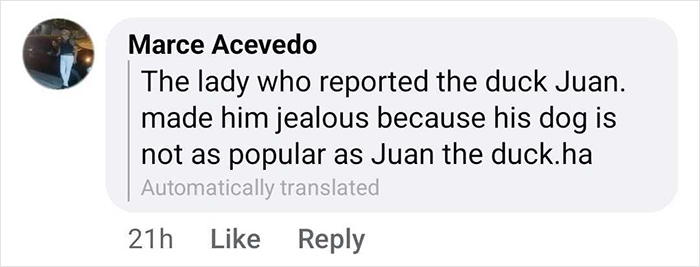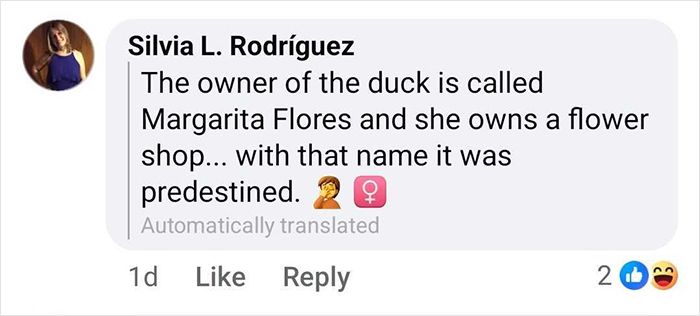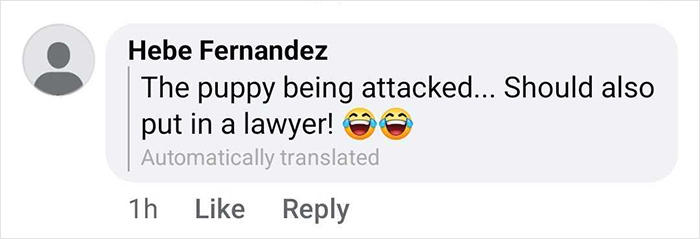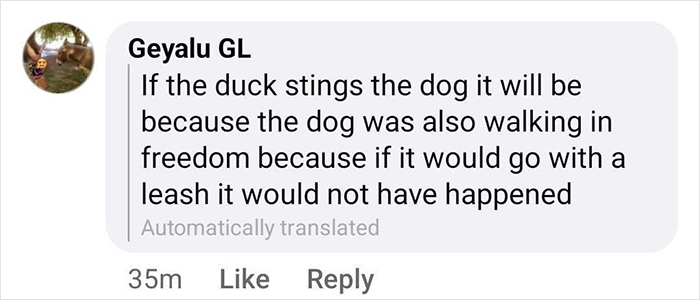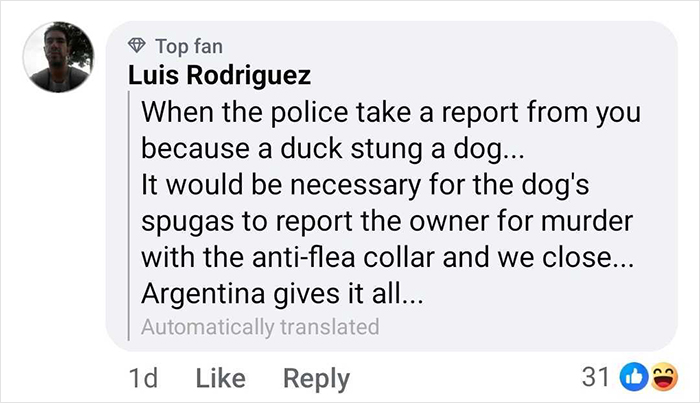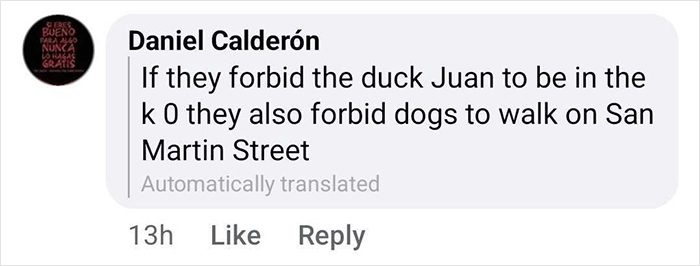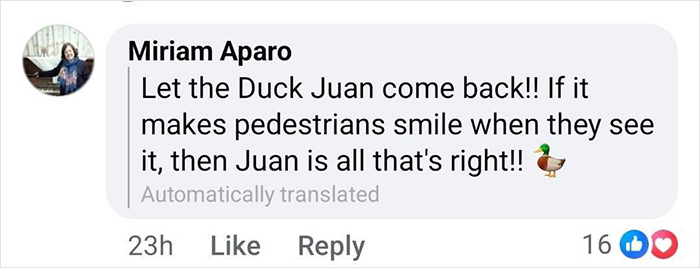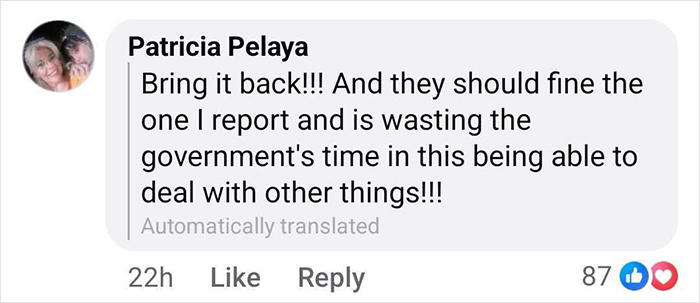The unusual saga of Juan the Duck continues to capture the hearts of Mendoza, Argentina, citizens, both fascinating and confusing people around the world.
Juan was a beloved figure in Mendoza. As the pet of florist Margarita Flores, he had become a local celebrity, with people leaving food, water, and gifts for him whenever they passed by the store.
Everything changed when the animal began pecking at dogs, causing owners to file complaints with local authorities. These complaints ultimately led to Juan being taken back to Flores’ home, and a campaign to bring him back.
What began as a simple neighborhood complaint about an aggressive duck has snowballed into a heated debate on responsible animal care, drawing in local officials, activists, and, surprisingly enough, lawyers.
Local pet “Juan the Duck” is being represented by a lawyer after Argentinian authorities demanded his removal from the streets
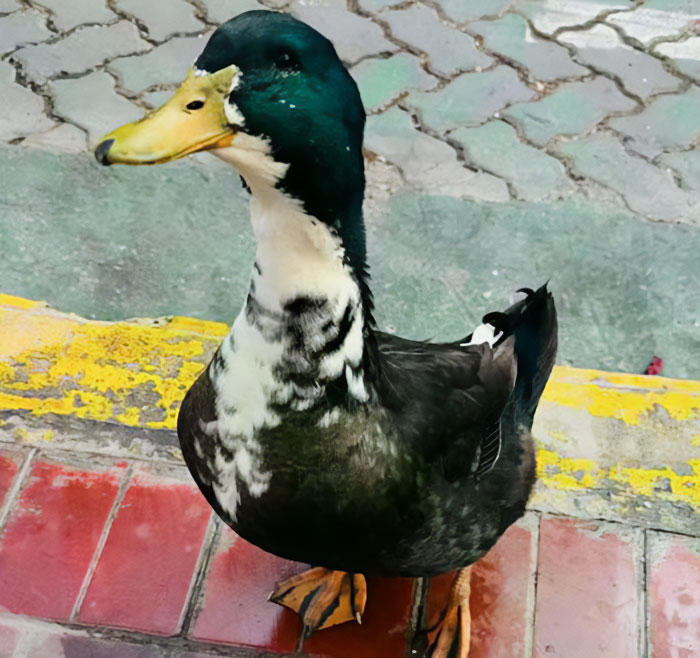
Juan the Duck is now officially being represented by Oscar Alfredo Mellado, a criminal lawyer known for defending animal rights, who filed an appeal requesting the municipality reconsider its removal order.
“Our aim is to find a balanced solution that respects the bird’s welfare, the urban environment conditions, and the community’s interests,” Mellado explained to local media.
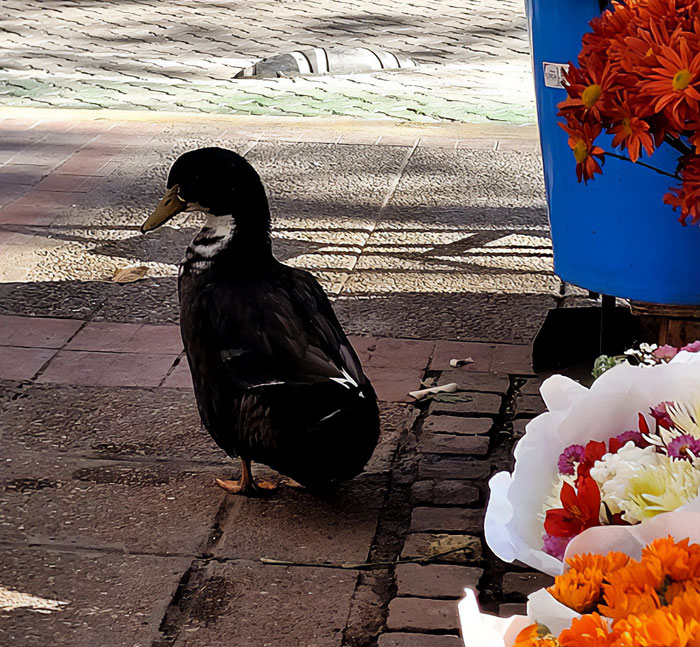
Juan was no ordinary duck. For years, he was a cherished fixture in Mendoza’s microcenter, faithfully accompanying Margarita Flores, a local florist who cared for him.
The duck was a minor celebrity: neighbors left him food, buckets of water to bathe in, and visitors stopped to take photos. Juan’s presence became a quirky part of the city’s daily life.
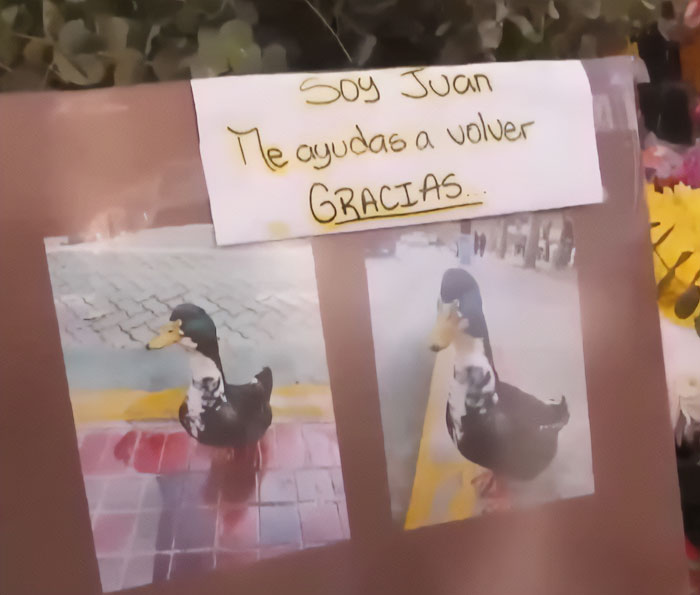
But Juan’s protective instincts sparked conflict.
Neighbors began complaining about his aggressive behavior toward other pets, particularly dogs, whom Juan would peck. The situation culminated in a municipal intervention after an anonymous complaint triggered an official inspection.
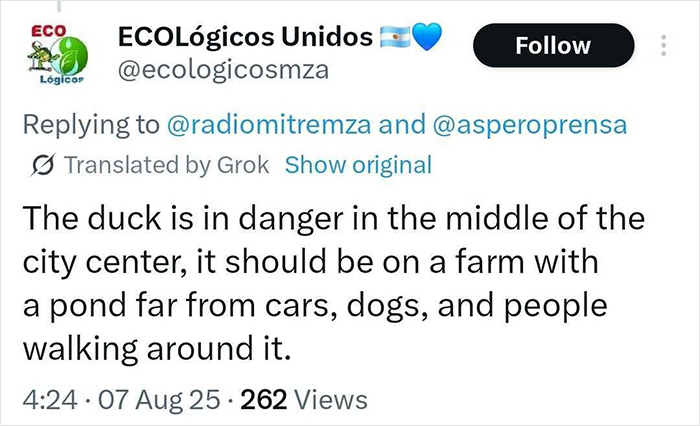
“The city center is not suitable for loose animals, given the heavy vehicular and pedestrian traffic. The intervention sought to ensure appropriate use of public space,” explained Silvina López, Secretary of Environment for Mendoza.
More than 7,000 Argentinians have signed in favor of Juan returning to the flower shop
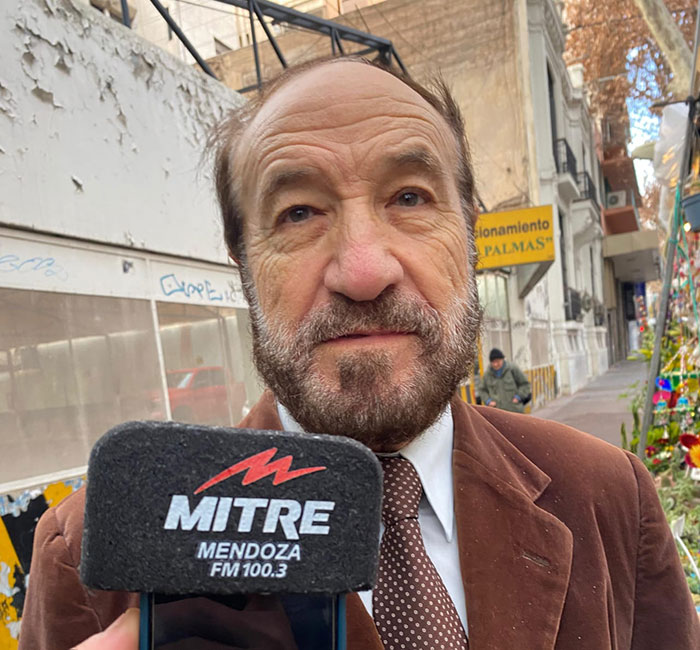
Following the inspection, Juan was classified as a “poultry bird,” a designation that justified his removal from the urban habitat under threat of confiscation.
Since then, Juan has been confined to Margarita’s rural home in Maipú, away from the bustling street where he grew up.
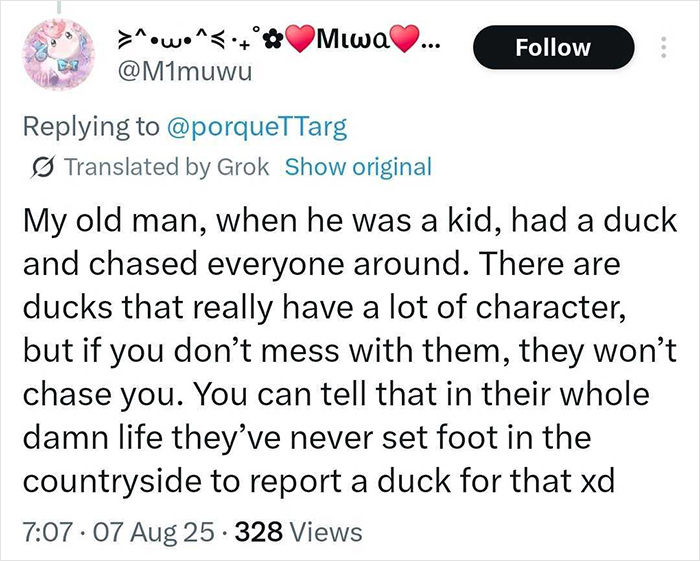
The move motivated an immediate and emotional response from Mendoza’s residents, who went in droves to show their support for Juan the Duck.
Image credits: C5N
Last Wednesday (August 6), news spread of his supporters setting up an “altar” with notebooks and photos of Juan, accompanied by a sign reading “Please help me go back.” Over 7,000 signatures have since been collected demanding his return.
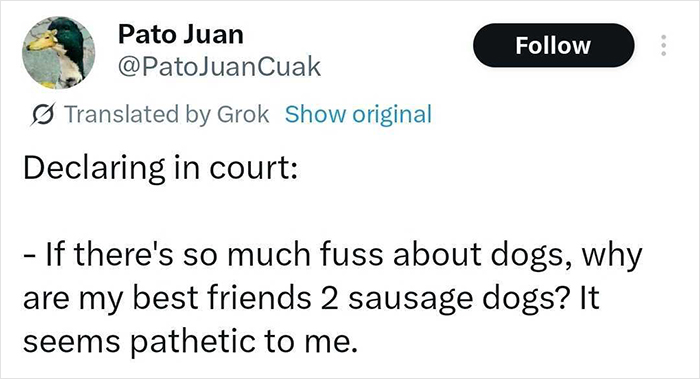
“They made an anonymous request to the municipality to remove Juan from the streets. As soon as we took him home, people started asking, ‘Where is Juan? Did something happen to him?’” Margarita Flores explained.
“That’s when the idea of collecting signatures was suggested, notebooks were brought, and people started signing. I want to thank everyone.”
The case caught the attention of congress members, who allege that Juan should be treated as part of Flores’ family
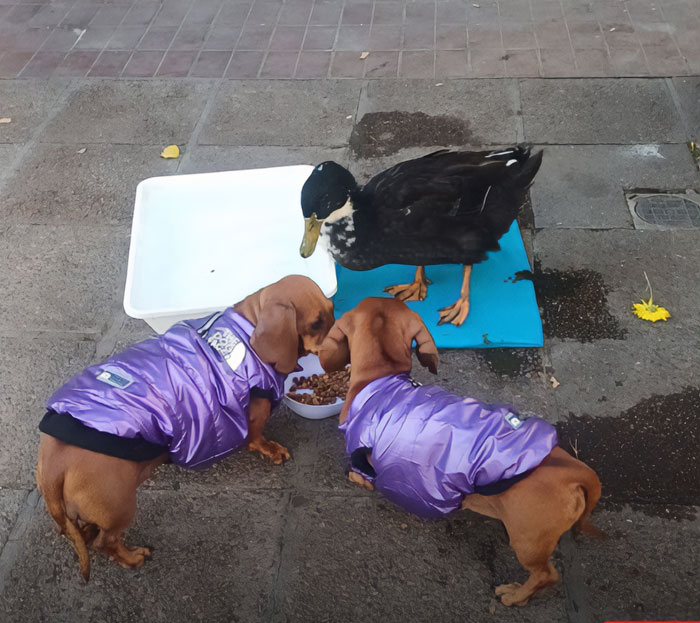
Ricardo García, a councilman from the Green Party, introduced a formal project at Mendoza’s City Council to address the issue through an interdisciplinary dialogue.
“We are facing a sentient being who was part of an interspecies family and who currently suffers due to a hasty decision,” García told local media.
“We call for common sense, dialogue, and a solution centered on animal welfare. This is not merely an administrative issue.”
Image credits: Radio La Red AM 910
His proposal calls for the creation of a technical committee that includes urban fauna specialists, veterinarians, ethologists, animal protection organizations, and environmental officials.
García emphasized that Juan should not be treated as a mere pet, but as a family member.
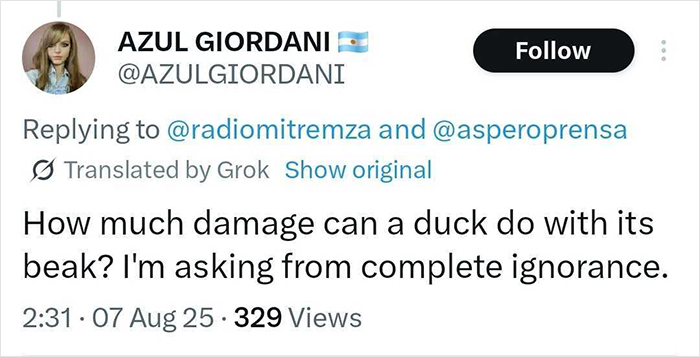
“He grew up in that exact place, surrounded by human affection, without interaction with others of his species.
Now, he suffers from stress, nutritional deficiencies, irritability, and isolation in captivity,” García said. “We cannot keep ignoring his suffering.”
Many have expressed their displeasure with how extensively Juan’s story has been covered by the media
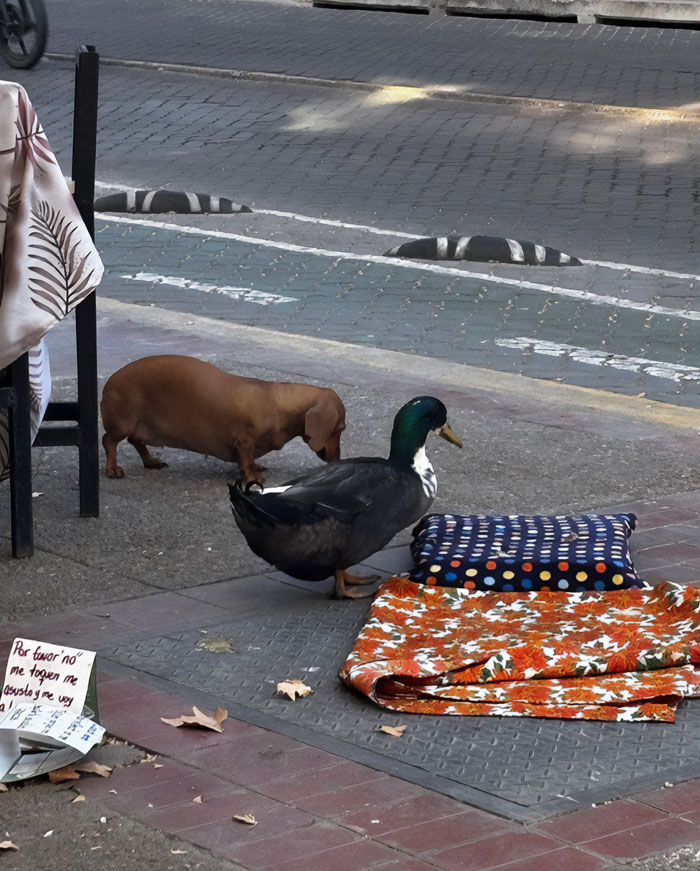
On the other hand, many Argentinians have expressed frustration at the extensive media coverage Juan has received, seeing it as a distraction from more urgent issues.
“A duck that pecks a dog… That’s what the media is for in Argentina, dealing with these stupid things while politicians rob you every day!” one user said
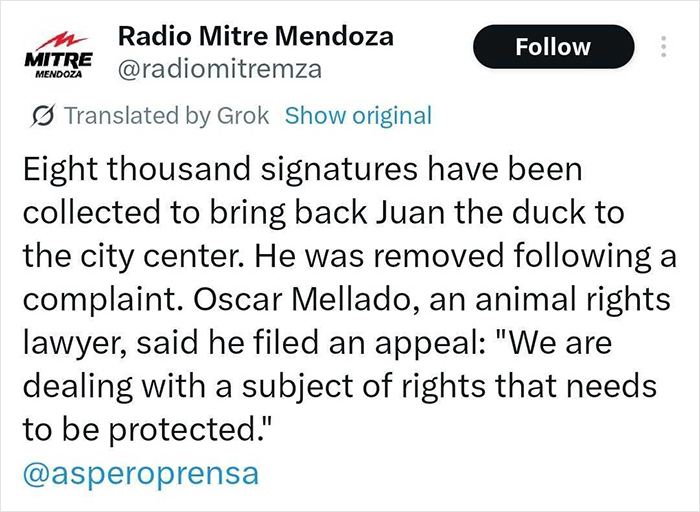
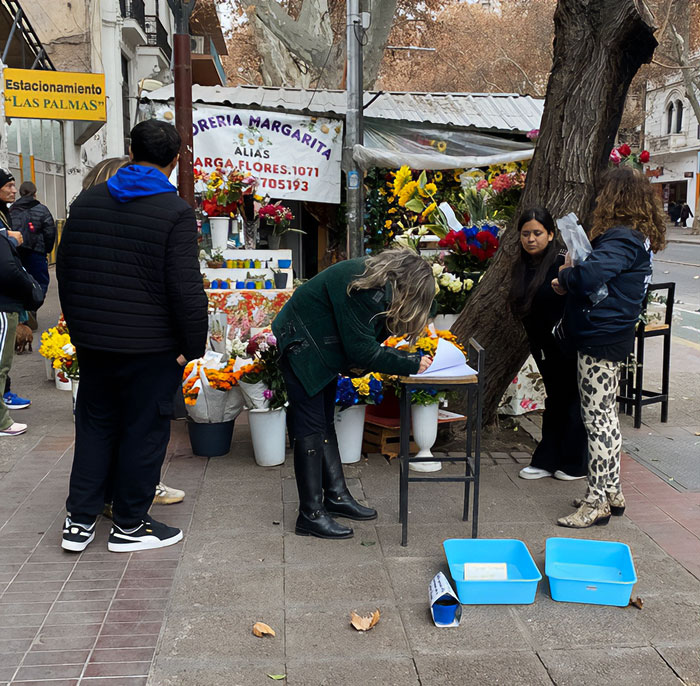
In the same vein, Ricardo Montacuto, a well-known radio host, dismissed the case as “shockingly frivolous.”
“A duck wandering on a busy street is not only unhygienic but dangerous for the animal,” he warned.
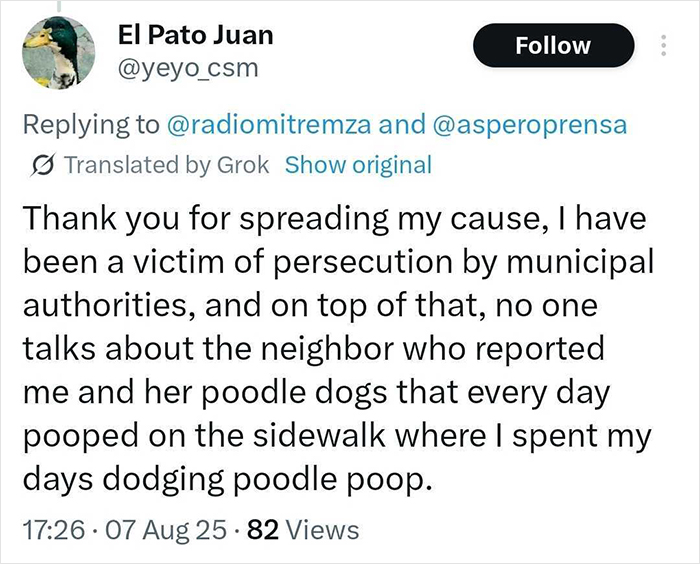
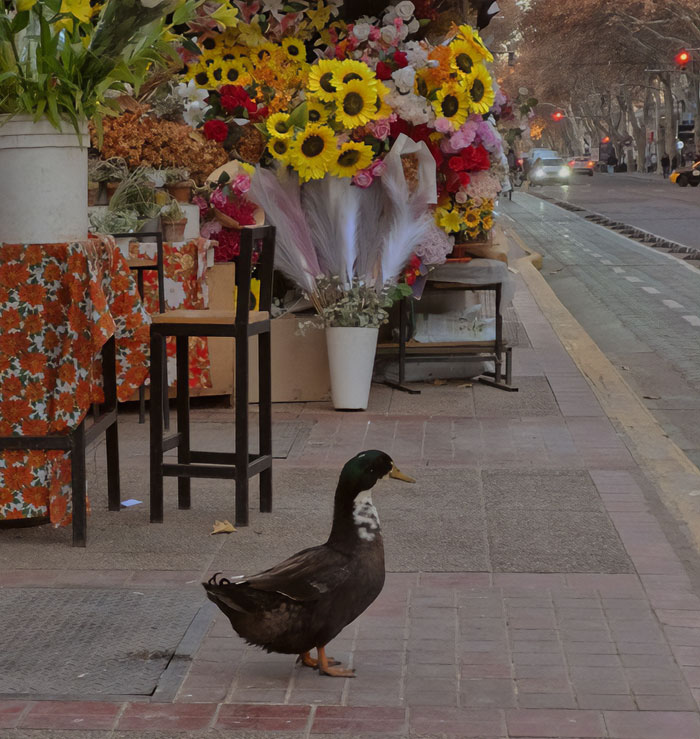
Montacuto also criticized the congressman’s attempt to frame the case as animal abuse, questioning the notion of the Flores family as an “interspecies family.” He cautioned that Juan’s case could set a precedent where other shop owners might bring exotic animals just for viral fame.
“It’s completely moronic,” he added.
Image credits: Crónica TV
Contrasting with Montacuto’s view, his co-host Andrés Gabrielli offered a different perspective.
“Juan’s story went viral because people need a break from heavy realities. You can’t bombard audiences with politics all the time. Frivolous stories allow people to relax, especially with elections coming up in September,” he said.
Information in Spanish has been translated with the help of a native speaker.
“#FreeJuan”: Both Juan and his owner are now waiting for the case to be resolved

